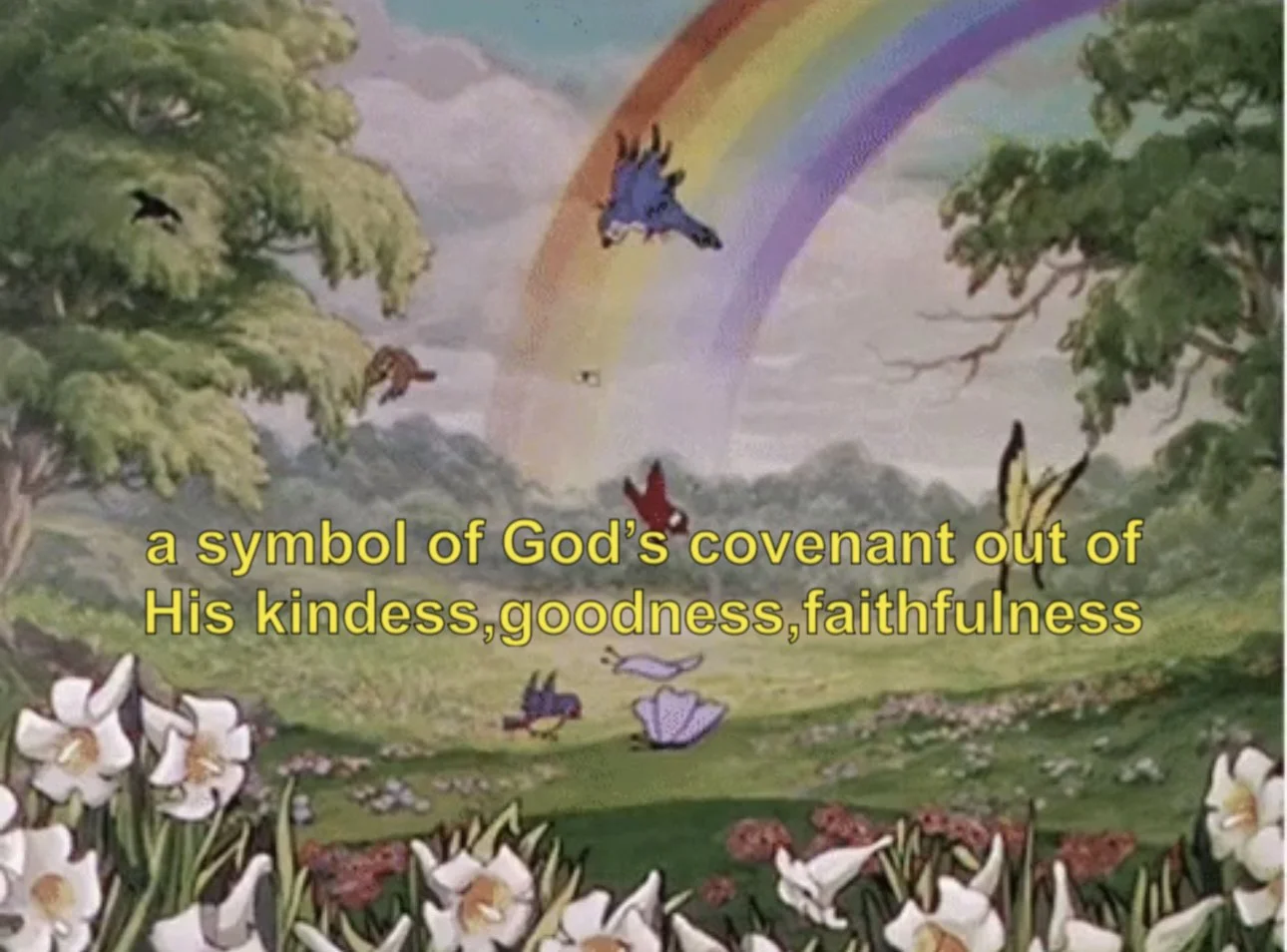Flourish
“The righteous will flourish like a palm tree, they will grow like a cedar of Lebanon; planted in the house of the LORD, they will flourish in the courts of our God. They will still bear fruit in old age, they will stay fresh and green, proclaiming, “The LORD is upright; He is my Rock, and there is no wickedness in Him.” Psalm 92:12-15
When I was dating my husband, he shared with me how much he loved palm trees and because of that, I have never looked at a palm tree the same. The palm tree reminds me of the love I have for my husband.
I am also drawn to how the Bible uses the palm tree to describe the life of the righteous. The writer compares the palm tree to the strength of a cedar tree of Lebanon.
“Palm trees are known for their long life span. To flourish like a palm tree means to stand tall and to live long. The Cedars of Lebanon grew 120 feet in height and up to 30 feet in circumference; thus, they were solid, strong, productive, and immovable. The writer saw believers as upright, strong, productive, and unmoved by the winds of circumstance and aging. Those who place their faith firmly in God can have this strength and vitality” (Bible Commentary).
In my walk with Jesus, God has taught me that my strength comes from Him and Him alone. This truth has carried me when “flourishing” was the opposite of how I felt. Flourishing means vigorous and healthy growth. God loves when we rely on Him alone for our emotional, physical, and spiritual strength. And God loves when we rely on Him for our steady growth in Christ.
This Psalm serves as a reminder for the eternal security God reserves for those who faithfully love and trust Him. Psalm 92:1-15, describes the wicked and evil doers that appear to flourish temporarily to the righteous who eternally flourish in God’s presence. The writer compares the wicked with the fragility of grass and the righteous as the palm tree in the courts of God.
God desires for us to trust Him and His purposes even when we don’t feel like we are flourishing and when we don’t understand our current circumstances.
When we are tempted to despair as we see the wicked flourish, may God give us an eternal prospective. May we remember the end for the wicked and the end for the righteous as the psalmist proclaimed.
The Good News is this: The righteous are promised to be displayed flourishing in the courts of God and will never be without testimonies of the ways that they have seen God’s character to be true!
When we trust in God and abide in Him, we will find that there is more to life than what we see. When we hold fast to Him, we will see our life in light of eternity.
“When we see a noble palm standing erect, sending all its strength upward in one bold column, and growing amid the dearth and drought of the desert, we have a fine picture of the godly man, who in his uprightness aims alone at the glory of God; and, independent of outward circumstances, is made by divine grace to live and thrive where all things else perish” (Spurgeon).
PHARAOH, moses, & Deliverance
“They had almost wiped me from the earth, but I didn't forsake your precepts” (Psalm 119:87).
One afternoon, we were having lunch out as a family. Everyone was over-hungry so we ordered our food right away. As the hot meal came to our table, it brought joy to all of us as it could not have come soon enough, especially with two hungry children. In my zeal to help my daughters with their food, I accidentally hit my large glass of ice tea with my elbow. Our delicious hot lunch was almost washed out with ice tea and ice cubes, yet by a miracle, the glass waddled back on its own and our afternoon lunch was saved!
As trivial as my example is, it has me wondering about how many “almosts” God has saved us from that would have been a terrible catastrophe had He not interceded?
“There is gold in that word, almost. It reminds us that though our foes (especially our spiritual adversaries) may press for our complete destruction, God will preserve us. He allows us to be attacked, yet at the same time He sets a limit to the success of the attackers. Almost is a word of God’s gracious protection.” David Guzik
The psalmist in this Psalm said he was almost dead (they almost made an end of me on earth), yet he would not forsake the word of God.
How about you? What are your “almosts”? Have you had situations in your life where you have seen God’s miraculous and gracious hand protect you from an “almost” tragic situation? I know our family has had its share of “almosts.” One being a very serious car accident and another was my child’s serious health concern, to name a few. I am sure you have had some “almosts” that come to your mind too.
There is one story in the Bible that also comes to mind. In Exodus 14:12-14 it shares the story of the Israelite’s release from Pharaoh’s bondage. When Pharaoh finally released the Israelites from their harsh bondage, Pharaoh had second thoughts about releasing his work force and decided to come after them with his powerful army. When the Israelites saw Pharaoh’s army advancing towards them— they were terrified and cried out to the LORD. (Exodus 14:10)
The Israelites had every reason to be afraid— they were trapped between the mountains and the sea and they were in trouble. However, Moses reminded the people that God would fight their battle and they only needed to stand still and watch. The posture of standing still meant they stood their ground in faith knowing that God would come through for them once again!
“And Moses said to the people, “Do not be afraid. Stand still, and see the salvation of the Lord, which He will accomplish for you today. For the Egyptians whom you see today, you shall see again no more forever. The Lord will fight for you, and you shall hold your peace” (Exodus 14: 13-14).
Under God’s direction, Moses was instructed to lift his staff over the sea as God would part the sea.
“Then Moses stretched out his hand over the sea; and the Lord caused the sea to go back by a strong east wind all that night, and made the sea into dry land, and the waters were divided. So the children of Israel went into the midst of the sea on the dry ground, and the waters were a wall to them on their right hand and on their left. And the Egyptians pursued and went after them into the midst of the sea, all Pharaoh’s horses, his chariots, and his horsemen” (Exodus 14:21-23).
The entire 600,000+ Israelite company, safely crossed through the Red Sea. Although the Egyptian army pursued them into the midst of the sea, at the just the perfect timing, God closed the Red Sea upon their enemies.
The Israelites must have thought they would be destroyed— and they almost were… had God not intervened.
The Good News is this: Even though our “enemies” may press for our complete destruction, God will protect us and preserve us!
May we be encouraged to never forsake God’s Word in all seasons of our life. Whether we are in a season of sowing, a season of reaping, a season of waiting, a season of prosperity or a season of trials, let us trust God with all our hearts and hold tightly to His promises and precepts in His Word just like the psalmist!
Finally, when we feel “Pharaoh’s army” is advancing towards us, let us remember that although God allows the attacks, He also sets a limit on the attacks and will safely see us through without fail and according to His will!
“When I am afraid, I put my trust in you” (Psalm 56:3).
Don’t shrink back
“Let us not become weary in doing good, for at the proper time we will reap a harvest if we do not give up.”
— Galatians 6:9 —
Have you experienced weariness? When we are weary it means we are physically, mentally and even emotionally exhausted from hard work and strain. When we are weary, our natural human response is to give up, throw in the towel and become greatly discouraged. And when we are discouraged, it is easy to lose heart, isn’t it?
“It is easy but dangerous to lose heart. In the ancient world, this phrase translated lose heart was used for the kind of fear and weariness a woman experiences during labor before delivery. It describes a time when the work is hard and painful, but also unfinished and unrewarded. It’s easy to lose heart when we feel like that, but that is exactly when we must hang on and not grow weary while doing good” (David Guzik).
Can anyone relate?! It is in these times that we must not throw away our confidence or lose sight of the goal. In these times, we must remember the powerful promises that are ours in Christ.
“So do not throw away your confidence; it will be richly rewarded. You need to persevere so that when you have done the will of God, you will receive what He has promised” (Hebrews 10:35-36).
Are you enduring a hardship and are tempted to give in to doubt?
Sometimes we need to be reminded that we have an enemy of our souls. An enemy that the Bible says comes to kill, steal and destroy. An enemy who comes to kill our dreams, steal our joy and destroy our peace of mind. But let us shout this on the mountain tops: Jesus came to give our life purpose, to give us an abundant and satisfying life! (John 10:10)
Jesus has given us the Holy Spirit to help us not grow weary, to help us to not throw away our confidence in God’s promises, and to remember the Spirit that God has given us is not one that shrinks back!
The Good News is this: “We do not belong to those who shrink back and are destroyed, but to those who have faith and are saved.” Hebrews 10:39.
God is a loving Father who provides everything we need to live victoriously. However, God leaves the choice with us on which path we choose to take: “throwing away our confident trust in Christ or patiently persevering with Christ to the end” (NIV Bible commentary).
Our fervent desire is to encourage you to keep trusting God in whatever situation you are in today. We know life takes many unexpected turns and you may feel defeated. As people who God has seen through the thick and thin, we want to continue cheering you on as you turn to Christ for renewed strength and as you boldly and courageously press on for a plentiful harvest is coming if we do not give up!
“But those who trust in the LORD will find new strength. They will soar high on wings like eagles. They will run and not grow weary. They will walk and not faint” (Isaiah 50:31).
God is life
Do you ever ponder the thought that we are twirling in a galaxy surrounded by billions of stars and other unknown galaxies? Our lives can often feel so small and unimportant as we think about the vast universe that we live in. When I find myself worrying about my circumstances, I remember to look up to the heavens for perspective. Psalm 8:3-4 says,
“When I consider your heavens, the work of your fingers, the moon and the stars, which you have set in place, what is mankind that you are mindful of them, human beings that you care for them?”
The God who created the heavens, the galaxies, the moon and the stars by speaking them in existence also created us and is intimately aware of our every thought, our every need, and our every concern.
It is in these pondering moments that I recall that the God who made the galaxies and has given life to all created things, sees me! From God, all things were created and for God, we live. He is not only revealed in His creation but is close to everyone of us. Through His Holy Spirit, He lives within all who believe in Jesus Christ. Acts 17:28 says, “For in Him we live and move and have our being.”
Over the course of this month we have been reminded of who God is as we read through 1 John. God is Light, God is Love, and today we are reminded that God is Life!
When we accept Jesus as our Lord and Savior, we are given an amazing gift and promise of eternal life— everlasting life!
“For God so loved the world that He gave His only begotten Son, that whoever believes in Him should not perish but have everlasting life” (John 3:16).
“The everlasting life Jesus spoke of is not simply the unending life of eternity. It speaks of a quality of life. Some scholars even translate the idea of the words everlasting life into ‘life from heaven’ or ‘life from above.’ It means that we believe God gives His kind of life to us...The wonderful thing about this is that we can start living and enjoying the God-kind of life right now. God’s promises not only affect our present day, but helps prepare us for eternity with God in heaven.” (David Guzik)
It has been 26+ years since accepting Christ as my Lord and Savior and I have seen Jesus be faithful to me through the highs and the very lows of my life. I can personally attest to this: God is life and the sustainer of my life. He is the sole source of life! Psalm 36:9 says,
“You are the source of all life, and because of your light we see the light” (Good News Translation).
Many of us have wrestled with the question — what’s the point of our existence? When we attempt to answer this question apart from God, our lives can feel meaningless, at times hopeless, many times fearful, and even without purpose and sadly, perhaps, even useless. Without God breathing life, love, understanding, and meaning into our lives, life feels empty.
God knows the human heart intimately and understands that living in a fallen world can cause us to feel discouraged. In spite of this, God has a purpose for each one of us and it is good! Psalm 139:13-16 , conveys the truth of His intimate knowledge of us:
“Oh yes, you shaped me first inside, then out; you formed me in my mother’s womb. I thank you, High God— you’re breathtaking! Body and soul, I am marvelously made! I worship in adoration—what a creation! You know me inside and out, you know every bone in my body; You know exactly how I was made, bit by bit, how I was sculpted from nothing into something. Like an open book, you watched me grow from conception to birth; all the stages of my life were spread out before you, The days of my life all prepared before I’d even lived one day” (The Message).
What a loving Father we have; you and I have His very breath moving in and through us!
When we accept Christ’s gift of eternal life, we are agreeing with God that in Him alone is our True Life found! In my knowledge of this, I realize that my life is not just a testament to God’s goodness and glory, it’s a proclamation of it!
Understanding that we have an intimate and loving God who cares for us, the apostle John encourages us to approach God confidently through prayer.
The Good News is this: We serve a God who not only sees us, but hears us! He hears the deepest cries of our heart and promises to sustain us and even carry us when we feel we do not have the strength to go on. We are not traveling through this massive universe alone!
“This is the confidence we have in approaching God: that if we ask anything according to His will, He hears us. And if we know that He hears us— whatever we ask— we know that we have what we asked of Him” (1 John 5:14-15).
Prayer is a powerful tool where we can experience fellowship with God— through the good times and the hard times. In fact Jesus encourages us to pray without ceasing (1 Thessalonians 5:17-18).
It is important for us to understand that God’s care for us is steadfast even in our darkest moments. It is in our most trying times that we have a deeper understanding of His faithful love— God’s presence is with us throughout our life whether we are conscious of it or not.
May I encourage you to approach God confidently this week? Let’s pray bold prayers knowing that the God who intimately knows our name, knows our heart and there is no limit to His understanding of us. Not only does He determine the number of the stars in the heavens, but He calls each of them by name!
“He heals the brokenhearted and binds up their wounds. He determines the number of the stars and calls them each by name.Great is our Lord and mighty in power; his understanding has no limit” (Psalm 147:3-5).
The love of god
There is a man I would see frequently who stood near a busy street holding a colorful “Jesus Loves You!” sign. Whenever I drove past by him, I couldn't help but smile and honk in agreement. But, if I’m being honest, I rarely took time to reflect on the truth of the words written on his sign.
You see, driving quickly passed the “Jesus Loves You” sign feels like a really good analogy for how many of us zoom past this profound truth of God’s love in our daily lives, whether we mean to or not.
In preparing for this week’s newsletter, I was surprised of how little of my life has been spent reflecting on the love of God. There is nothing more powerful than God’s love. In fact, I fall short in trying to capture God’s love in words. If you’ve ever tried to verbalize God’s love, you may have experienced the same feeling. It’s not that we don’t know God’s love, it’s that words tend to fall woefully short when trying to explain the depth of love that God has for each and every one of us. Perhaps the reason we find it so difficult to communicate God's love solely through our words and talk, is because we were meant and called to love in deed and truth!
“Little children, let’s us not love in word or talk but in deed and in truth.” 1 John 3:18
As we wrestle with what it means for God to love us, our hearts reflect Paul’s in Ephesians 3:17:
“I pray that you, being rooted and established in love, may have power, together with all the Lord’s holy people, to grasp how wide and long and high and deep is the love of Christ, and to know this love that surpasses knowledge— that you may be filled to the measure of all the fullness of God.”
Love is a core attribute of who God is. How we begin interpreting God’s love for us is deeply impacted by the way we experienced love in our homes while growing up. Some of us came from loving homes and some us came from homes often riddled with brokenness and pain of varying degrees.
It is profound that God chooses to relate to his people as “Father”; redeeming the figure in the family that has the most potential for pain and destruction. As important as our earthly fathers’ love is, it is only a shadow of God’s love for us. God’s unconditional love is perfect, holy, steadfast, enduring, strengthening, and protective. It transforms the way we receive love, which then impacts how we love and interact with others.
The only way to have a richer understanding of God’s sacrificial love for us is by looking to what Christ did on the cross for our sins and accepting the gift of salvation that He purchased for us with His blood. When we acknowledge the darkness of our sin, we have a better picture of all we have been saved from and the depths of love Christ has for us.
“By this we know love, that He laid down His life for us, and we ought to lay down our lives for the brothers” (1 John 3:16).
At the cross, we see God’s heart for us on full display. Jesus models for us what it looked like to live out 1 John 3:18 by not just verbalizing His love for us but also displaying it in action and in truth at Calvary. Here we have a picture of God’s perfect justice and perfect love. It is important to understand that God will never compromise truth in the name of love. Believing this, we misunderstand the reality that God is fully Truth, fully Just, and fully Love.
As I reflect on God’s love, I’m reminded of a story one of my Bible professors shared. The university invited a staunch atheist whom we will refer to as Bob, to debate his beliefs with that of the Christian faith. During his stay, some theology professors, a pastor, and “Bob” went to dinner. During dinner, all of the Christian theologians went to bat discussing with Bob the theological arguments for the Christian faith. Bob seemed unamused and unconvinced. Bob had shared with them the pain of having a father who lived a life inconsistent to the faith he proclaimed. While theology is crucial, at this time, Bob needed to first understand an important truth. He needed to know God’s unique heart for him. Perceiving this, the pastor decided to began to share about God’s love for Bob. The pastor apologized on behalf of Bob’s father, who had caused a lot of hurt and pain. Immediately, Bob was moved greatly and broke down in tears. Bob needed to hear someone confess that what he experienced was wrong in God’s eyes. At that moment, Bob did not need to hear one more argument but instead he needed to feel the love of God. Bob needed to know that God grieved with him regarding the injustice and inconsistent message he received from his father.
God’s love isn’t intimidated by high-level scholarly questions, or the most tragic circumstances this world has to offer.
No other religion in the world testifies that their God, in perfect love, died for their sins with the purpose of redeeming man and the image of God in man.
God knows us - He knows we are made from dust. He knows the family we were born into; the complicated realities we wrestle with in our day-to-day lives. He knows our hearts' natural inclination towards sin. And He knows the power that lies in His love - the love that heals, strengthens, and transforms us more and more into the image of God.
God’s love has the power to melt the hardest of hearts. It says in Proverbs 21:1, “The king's heart is a stream of water in the hand of the Lord; He turns it wherever He will.”
The Great News is this: Compelled with deep love and compassion, Jesus moved towards us while we were still enemies to Him.
God’s love and compassion towards us, compels us to move towards others to display this same sacrificial love so that they might know the most glorious truth of all - God’s heart to be in a loving relationship with us.
Here are a few questions to ponder before God today:
How do you feel as you ponder God’s love for you? Does it make you feel worthy? Unworthy? Ashamed? Apathetic? Calloused to the reality of His love?
When was the last time you felt God say, “I love you?” Perhaps you felt His through another person, a circumstance you saw God’s heart for you displayed, or through His Word. How did it make you feel?
What are some practical ways you can live in light of being loved by the Maker of the Universe?
While the ultimate example of God’s love is what Jesus did for us at the cross, we believe God delights in showing love towards us in our day-to-day. We encourage you to ask God to show His love for you uniquely. We know God delights and joyfully answers these prayers.
Walk in the light
"God is light; in Him there is no darkness at all. If we claim to have fellowship with Him and yet walk in the darkness, we lie and do not live out the truth. But if we walk in the light, as He is in the light, we have fellowship with one another, and the blood of Jesus, His son, purifies us from all sin." — 1 John 1:5-7
God is Light. His Light is the truest form of goodness, purity, truth, and holiness.
John the apostle, who is the author of 1 John, lived in close relationship with Jesus during His time on earth; often describing Jesus as “The Light”. John saw firsthand the illuminating power of Christ’s light in his own life.
The apostle John had a tender heart for believers in his time and wanted to provide a timely and loving warning to believers to stay in the “Light” and to not be like those living in darkness, who continue to choose their sin over their salvation. He wanted to encourage believers to continue pursuing a righteous life and to not be like many who claim to walk in the truth (light), yet still persistently continue in their ungodly behaviors.
John discusses two kinds of people: The ones who walk in the Light and the ones who claim to walk in the light but are instead choosing to walk in darkness (sin).
John’s warning invites us to pause and question what our actions and behaviors say of us — are we walking in the Light or are we walking in darkness?
Thankfully, the mark of a genuine believer is not that we are sinless, but that we recognize we have sinned against God. A genuine believer, with the help of the Holy Spirit, feels convicted of their sin - not condemned - and desires to quickly repent - not out of guilt but out of a genuine desire to please God who we love!
King David exemplified this kind of genuine love for God. We know that God delighted in David not because he was without sin, but because David did not cherish his sin. David hated his sin and was quick to ask for God’s forgiveness and turn from his sin. David’s sincerity of heart was a sweet aroma to God.
"Obeying and loving God, even imperfectly, is how we know that we are in true and right relationship with Him. Love for God expresses itself in obeying His commands” (Moody Bible Commentary).
Walking in God’s light means we humbly acknowledge our sin yet understanding Jesus’ finished work on the cross for us! Without the acknowledgment of our sins, we cannot truly walk in light or in truth.
“If we claim to be without sin, we deceive ourselves and the truth is not in us. If we confess our sins, He is faithful and just and will forgive us our sins and purify us from all unrighteousness” (1 John 1:8-9).
The Good News is this: God who is Light (pure, holy, true, and good), offers us His power to cleanse us of all sins that keep us in the darkness.
Throughout the book of 1 John, John continues to warn us of false teachers who often led others into darkness. He warns that these people claimed to love God with their lips yet chose to continue in their sinful passions. In 1 John 2:11, he describes these kinds of people as those who, “do not know where they are going, because the darkness has blinded them.”
Walking in the light means obeying God and His commands to love God and love others, despite the influence of the world around us.
To say it plainly, choosing to continually disobey God and His commands means we are choosing to walk away from God and thus to walk in darkness. This is a heavy statement but I am greatly encouraged that the Holy Spirit is here to help guide us in all truth and help empower us to obey God with sincerity of heart.
The apostle John provides important reminders to us that will serve us well especially in today’s world.
The first reminder is that we all have a choice: To walk in God’s light and truth or to walk in darkness. We are either walking in light or in darkness. You cannot choose both goodness, purity, and truth and a life of living in sin and darkness. We must choose.
Second, John reminds us that just because we walk in the light doesn’t mean we are without sin. Choosing to walk in the light is understanding that we all fall short of the glory of God but because of Jesus, God offers the forgiveness and redemption we so desperately need. Choosing Light means we accept Christ’s salvation for us!
Lastly, John reminds us to continue to grow in our love for God and for others. When we love the One True God, His loving Truth will radically transform how we approach life and how we love others.
The Great News is this: God’s Light illuminates all that comes near Him, we are not only forgiven, but we are fully known and fully loved despite our shortcomings.
“When Jesus spoke again to the people, he said, “I am the light of the world. Whoever follows me will never walk in darkness, but will have the light of life” (John 8:12).
Gentleness & self-control
The entire world recognizes gentleness and self-control as admirable pursuits, yet we enlist endless systems, programs and priorities that seem to scream the opposite. We are quick to trade our desire to exemplify gentleness and self-control as soon as convenience, self-preservation, and our conception of situational control gets their toes stepped on.
Our world is shouting that strength is loud, untamed, and flashy. The way Jesus walked and lived was gentle and humble. Could it be that humility, gentleness and self-control are actually markers of true strength?
The Greek word for gentle is praus, which means meek or mild. In Matthew 11:29, Jesus says of Himself, “I am gentle and humble in heart.”
Meekness is not a passive resignation. Meekness, or gentleness, is the ability to accept circumstances, no matter how undesirable, due to a deep trust in God for His plan and sovereignty. Long-suffering and endurance amidst difficult or unjust circumstances can sometimes lead people to mistake a meek or gentle person as weak. However, what they likely do not see outwardly is the resilient strength they exemplify within. Meekness is, in fact, strength.
Meekness is often best understood when applied to wild animals: an animal is meek when they are tamed. A tamed animal does not give up its power, but instead masters their strength and controls their desctructive instincts in order to live in harmony with other animals. The tamed lion is the perfect depiction of power under control; might restrained. Like the lion, we too can hone and master our fleshly, sin-fallen nature because of the power of the Holy Spirit. We no longer are slaves to our ever-changing, fleshly passions and desires (Galatians 5:24) but can act in opposition to the flesh by walking in step with the Spirit of God.
The Greek word for self-control is egkrateia, which means true mastery from within. This can only be accomplished by the power of the Holy Spirit.
In 2 Peter 1:5-9, we are exhorted to grow in our faith:
“ For this very reason, make every effort to supplement your faith with virtue, and virtue with knowledge, and knowledge with self-control, and self-control with steadfastness, and steadfastness with godliness, and godliness with brotherly affection, and brotherly affection with love. For if these qualities are yours and are increasing, they keep you from being ineffective or unfruitful in the knowledge of our Lord Jesus Christ. For whoever lacks these qualities is so nearsighted that he is blind, having forgotten that he was cleansed from his former sins.”
Remembering what Christ did for us keeps us in a posture of humility and protects us from being ineffective and unfruitful!
So how do we remember Christ’s finished work at the cross in our day-to-day in order for us to remain fruitful? First, we ask Him for help! Jesus promised His disciples that they would not be left alone but would have the help of the Holy Spirit to lead and guide them in all truth. Next, we can exercise the privilege of what Christ bought for us at Calvary - to draw near to a Holy and loving God, enjoying His presence and fellowship.
As we invite Jesus into our daily life, He will transform our hearts and minds in order for us to know the will of God. He will fragrance our lives to resemble Jesus’ as we look to Him in our daily rhythms and mundanity.
JESUS AS THE LION OF JUDAH
When I was younger, I asked God for a lion to be waiting for me when I arrived in heaven; one that I could pet and keep as mine. I knew lions were dangerous untamed, but I found the idea of having a lion that I could get close to and keep as my defender as epic! I wanted a lion dangerous to enemies and friendly to me - in other words, a good lion, not a “safe” lion. Narnia lovers, anyone?
The lion is at the top of the animal kingdom, meaning all other animals bow before it. They have no predator to fear. Jesus is the Lion of the Tribe of Judah! Jesus is God and does not need to be tamed. however, when He took on flesh, He willingly exemplified meekness out of full submission to the Father.
Jesus is the fulfillment of the Old Testament prophecy that one day, a Messiah would arise to redeem and rule the world (Numbers 24:17,19).
In Genesis 49:9 Jacob gives a prophetic blessing on Judah’s line saying, “You are a lion’s cub, Judah; you return from the prey, my son. Like a lion he crouches and lies down, like a lioness—who dares to rouse him?” Jacob also prophesies that Judah’s line would always hold the scepter and the ruler’s staff “…until the One to whom it belongs shall come
and the obedience of the nations shall be His” (Genesis 49:10).
Many expected that their coming Messiah would be a conquering king who would finally free them from the Roman Empire’s oppression. Jesus, who is the long-awaited Messiah, flipped the world and its expectations on its head.
Jesus is all-powerful, yet He endured the affliction of those He came to save.
Jesus is all-knowing, yet He was patient when those all around Him wrestled with doubts about Who He was.
Jesus is supremely good, yet in the face of the very people He came to save, He endured unjust circumstances, trusted in God’ perfect will, pressing on to overcome sin and death, offering salvation to all who would call Him Lord and Savior.
JESUS AS THE LAMB OF GOD
I confess I have found it easier for me to envision Jesus as the Lion than it is as the Lamb.
Jesus, the much anticipated Messiah, didn’t begin His public ministry until He was 30 years old! Think about how much life He had lived, with His divine identity being hidden until the proper time. There were plenty of moments where Jesus could have revealed Himself, or exercised His full might and authority to JUSTLY enact judgement. But He patiently waited on the Father each day, until the Father revealed that it was time for His ministry to be public.
When Jesus began His public ministry, He found John the Baptist in the Jordan river, prophesying and baptizing about the coming Messiah. When John the Baptist sees Jesus coming toward him, he cried out,“‘Behold, the Lamb of God, who takes away the sin of the world!’” (John 1:29).
All throughout the Old Testament, we see symbolism for the Passover lamb and additional Old Testament sacrifice-centered atonement for sins. These served as shadows of what was to come - Jesus as the final and sufficient Atoner of sins. Jesus, the Lamb of God, would come to bring salvation to His people through His death and resurrection. The Lamb of God overcame death, sin and satan by His blood and body poured out for us. Jesus is the only and truly sufficient Atonement for the sins of the world. Jesus is worthy of all honor, glory, and praise. Jesus came to bring the abundant life to those who would receive Him as their LORD and Savior.
The Lamb is the ultimate depiction of gentleness and self-control, as we see in Isaiah 53:7 -
“He [Jesus] was oppressed, and he was afflicted, yet he opened not his mouth; like a lamb that is led to the slaughter, and like a sheep that before its shearers is silent, so he opened not his mouth”
Jesus, the Lamb of God, obeyed the Father even unto death on the cross! He did not reject the will of God, but instead fully embraced the circumstances the Father purposed in order to bring eternal salvation and redemption to heaven and earth.
Jesus’ life perfectly models meekness and total submission to the will of God. His unjust trial and crucifixion revealed His perfect trust in God the Father.
The Good News is this: As we abide in Christ who is The Lion of Judah and the Lamb of God, He empowers, equips and enables us to follow His example. While we have times that we stumble, it is here, in nearness and intimacy with God, that our lives can produce the Fruits of the Spirit, on the soil of humility, that ultimately brings glory to God and blessing to others.
May we reflect on the truth and imagery of Jesus Christ as the Lion who holds all authority and power, and as the Lamb whose submission to God’s will leads to the ultimate redemption of the entire world!
Kindness, goodness, & faithfulness
“The one who pursues righteousness and love finds life, bounty, and honor” (Proverbs 21:21).
This week we are excited to learn a little more of what kindness, goodness, and faithfulness looks like in this godly pursuit towards righteousness.
When we think of man’s godly pursuit of righteousness, we can’t help but think of Noah. In Genesis 6:9 it says, “Noah was a righteous man, blameless among the people of his time, he walked faithfully with God.” The book of Genesis describes how great the wickedness of the human race had become on earth, but Noah was the only one of his time whom God found as righteous and blameless!
“Saying that Noah was righteous and blameless does not mean that he never sinned. Rather, it means that Noah wholeheartedly loved and obeyed God. For a lifetime he walked step by step in faith as a living example in his generation” (NIV Study Bible Commentary).
This week as we look at kindness, goodness and faithfulness, we are reminded that it is impossible to manufacture these qualities on our own. We need the transformation power of the Holy Spirit to produce genuine kindness, genuine goodness and genuine faithfulness in our lives.
When we abide in Christ and remain in close union with Jesus, these qualities flow from us naturally. We can’t obtain them by trying to get them on our own without His help.
LET’S TALK ABOUT KINDNESS
Did you know that kindness and compassion in the Bible are seen often together? The reason is because “kindness is compassion in action” (Shanna Ream).
In the Old Testament we see God’s compassion towards mankind. When the Israelites cried out to God in their suffering, God was moved with compassion and He extended kindness and mercy to them time and time again— despite their shortcomings. This pattern of God’s compassion, kindness and mercy found throughout the Bible is the example of what we should be mirroring to our family, friends, strangers and even to our enemies!
“Therefore, as God’s chosen people, holy and dearly loved, clothe yourselves with compassion, kindness, humility, gentleness, and patience. Bear with each other and forgive one another if any of you have grievances against someone. Forgive as the Lord forgave you. And over all these virtues, put on love, which binds them all together in perfect unity” (Colossians 3:12-14).
LET’S TALK ABOUT GOODNESS
In the Bible, we find that goodness is equated with this holy pursuit towards godliness. Goodness is “an excellence of character…only possible through God’s grace and mercy” (Kelly Wise Valdes).
There are many people that cause us to say, “Wow, they are doing so much good— what a good person!” but very few who carry Biblical ‘goodness’ in their nature. The Bible clearly describes goodness as something much deeper than good works.
Goodness is a response to the grace and mercy we have received through Christ’s salvation! From this goodness we enter into God’s good work that He has for us! It is in this good work, we are called to not become weary.
“Let us not become weary in doing good, for at the proper time we will reap a harvest if we do not give up. Therefore, as we have opportunity, let us do good to all people, especially to those who belong to the family of believers “ (Galatians 6:9-10).
LET’S TALK ABOUT FAITHFULNESS
“The Hebrew word rendered ‘faithfulness’ is emunah, which literally means ‘firmness,’ figuratively means ‘security,’ and morally means ‘fidelity’”(Bible Tools).
In other words, a person who displays faithfulness is someone who cannot be shaken, they stand firm in their beliefs and their godly pursuit!
A faithful person provides a feeling of safety and security because they have been proven trustworthy! Daniel of the Bible lived this kind of exemplary life of faithfulness. When he was young, he was taken from his home in Judah and was exiled. Under intense political and personal circumstances, he always remained true to his faith in God. Because of Daniel’s integrity and his fearlessness in being loyal to God’s commands, Daniel found favor with the King and served as an advisor to two Babylonian kings and two Medo-Persian kings. He never once proved unfaithful to God even unto death!
The Good News is this: Our ability to be faithful to God is wholly dependent upon the faithfulness modeled by a faithful God!
What we find at the core of genuine kindness, goodness, and faithfulness is a pure heart touched by the grace of Christ; This is a work of God. Again, without God’s help, our efforts can become merely behavioral (surface level), not an internal transformation.
God desires for us to approach Him and His Word with a humble and pure heart knowing that His love, tender mercy, grace and forgiveness are great and unending!
“Create in me a clean heart, O God, and renew a steadfast spirit within me” (Psalm 51:10).
The Great News is this: The kind of life Noah and Daniel lived are not out of reach for us! Because of the redeeming work of Christ in us, we too can live humble and righteous lives that leave an impact on our generation!
Peace and patience
“Peace I leave with you; my peace I give to you. Not as the world gives do I give to you. Let not your hearts be troubled, neither let them be afraid” (John 14:27).
Before we were reconciled with God, the Bible says that we were at war with Him. Because of God’s love for us, He chose to reconcile sinners to Himself, through Jesus Christ. Now, those who accept Jesus as their Lord and Savior are at peace with God (no longer enemies) and made alive in Him (Romans 5:10)!
The peace God gives us is unlike any peace the world can offer.
The Hebrew word for peace (shalom) carried a deeper meaning than our English word for peace. It implies not only the absence of conflict and turmoil, but a positive blessing. This peace remains steadfast amid any and all circumstances we may face. Often, it shines the brightest in the face of trials and tribulations.
A quick google search will claim peace as, “freedom from disturbance; tranquility” or “a state or period in which there is no war or a war has ended.”
The life of Jesus, who is the Prince of Peace, provides us a very clear understanding of the kind of peace He offers us. Looking at His life, we discover that peace does not rely on:
Our present circumstances;
The way we are received or perceived;
Freedom from disturbances.
“Sin, fear, uncertainty, doubt, and despair are at war within us, but the peace of God restrains these hostile forces and offers comfort in places of conflict” (Bible Commentary, NIV).
Because God’s very nature is peace, He can freely offer us His peace right in the midst of our greatest tribulations. Because of Christ, we can walk through any situation with a confident hope that God holds all things together for our good.
It’s easy to see a world that is constantly out of sync with the values of Christ and grows bitter towards God and people. However, Jesus warned His disciples and followers that there will be many uncomfortable times where the world will not always receive them with love and joy but instead, with hate and hostility.
Jesus said, “I have said these things to you, that in me you may have peace. In the world you will have tribulation. But take heart; I have overcome the world” (John 16:33).
The Good News is this: We can find peace and refute fear by setting our hearts and minds on Christ and His finished work on the cross. Our hope is found in Christ’s victory over sin and death.
In Romans 12:12, we are encouraged to be joyful in hope and patient in affliction.
Peace and patience are a posture and stance we take in Christ that helps bear witness to the Holy Spirit’s active work in our lives.
“In the Bible, patience is not a passive acceptance of circumstances. It is a courageous perseverance in the face of suffering and difficulty” (Warren Wiersbe).
Without the help of the Holy Spirit in our lives, choosing patience is almost always our last resort. When we take the posture of patience, we are choosing to have an unwavering trust in God that He is in control and He has the final say.
God is constantly displaying His character towards us — and there is no greater example of patience than God’s patience with us!
Paul captures it when he says in 1 Timothy 1:13,16 —
“I was a blasphemer, persecutor, and insolent opponent… But I received mercy for this reason, that in me, as the foremost, Jesus Christ might display his perfect patience as an example to those who were to believe in him for eternal life.”
The Great News is this: God offers His peace and His unending patience to all who would receive it through Jesus!
May our posture of peace and patience reveal the powerful transforming work of Jesus Christ in our own lives.
“You keep him in perfect peace whose mind is stayed on you, because he trusts in you. Trust in the Lord forever, for the Lord God is an everlasting rock” (Isaiah 26:3-4).
Love and joy
Love and Joy are quite possibly the most exciting things we get to experience this side of heaven; and yet, they don’t seem to hold the weight we know they should in our day and age. Since it feels like our world is being significantly desensitized towards “love” and “joy”, we believe there is no greater time than now to dive into God’s Word together and explore His design for what the world is desperately seeking but falling short in its quest for love and joy.
How does He want us to view love?
What was His design for a joyful life?
Last week, we discussed God as “The Good Gardener” and Christ’s call for us to abide in Him so He can produce abundant fruit in our lives. This week, we will be gleaning from John 15:9-13.
“As the Father has loved me, so have I loved you. Now remain in my love. If you keep my commands, you will remain in my love, just as I have kept my Father's commands and remain in his love. I have told you this so that my joy may be in you and that your joy may be complete” (John 15:9, NIV).
Christ calls us to abide in His love. This phrase “abide in My love” signifies a beautiful, intimate, and loving relationship with Jesus. When we choose to abide in Him, we simultaneously abide in His great love for us. The only way to abide in this precious Love is by actively choosing to keep His commands.
“love each other as I have loved you” (John 15:12, NIV).
Abiding in His love must come first, always. We cannot miss this prioritization in our life. How well we experience love and joy will hinge on this daily choice.
Jesus also calls us to love others as we love ourselves. What a commandment! As we study this week, we are struck by God’s love for the human race. God is calling us, the Church, to edify others and reflect God’s heart for mankind. He truly loves and cherishes people. We should often stop and ponder on this truth: People are highly valuable to God and He desires for everyone to experience His love and joy to the fullest!!!
…His “joy may be in [us] and that [our] joy may be complete” (John 15:11)
Just as abiding in His love is an active choice, so is it with joy. Life is not always sunshine and roses as I’m sure you know — sometimes we go through hard and difficult times. Jesus’ idea of a “joyful life” is something deeper than just experiencing the good times. In order to receive the fruit of joy, sometimes we have to experience the hard times to see that our joy is not dependent on our circumstances. “True joy is deep and strong, not superficial. It is the quiet, confident assurance of God’s love and work in our lives - that He will be with us no matter what.” (NIV Study Bible Commentary)
The Good News is this: we can find overwhelming joy when rooted in a secure hope and confidence in the God of our salvation.
Finally, in the book of Habakkuk, we learn of a man who was seeking answers. He was troubled by what he observed, he asked tough questions. Habakkuk saw a grim future and he felt the weight of this knowledge. Just like Habakkuk, it is easy to look out into the world and see devastation at every corner and it warrants us to ask why so much evil? Or, “God, what’s the plan here?”
Instead of falling into defeat and discouragement, Habakkuk courageously chose to pray. He “boldly and confidently took his complaint to God and God answered him with proof and prediction” (NIV Study Bible Commentary).
After the LORD answered Habakkuk, this was his joyful response as he trusted God to one day make all things right:
“Though the fig tree does not bud and there are no grapes on the vines, though the olive crops fails and the fields produce no food, though there are no sheep in the pen and no cattle in the stalls, yet I will REJOICE in God my Savior.” (Habakkuk 3:17-18, NIV)
Godly joy transcends ALL circumstances. We can be joyful in all circumstances because we have a God whose love abides in us and who is for us. Now that is Good News!
Love and Joy are quite possibly the most exciting things we get to experience this side of heaven; and yet, they don’t seem to hold the weight we know they should in our day and age. Since it feels like our world is being significantly desensitized towards “love” and “joy”, we believe there is no greater time than now to dive into God’s Word together and explore His design for what the world is desperately seeking but falling short in its quest for love and joy.
How does He want us to view love?
What was His design for a joyful life?
Last week, we discussed God as “The Good Gardener” and Christ’s call for us to abide in Him so He can produce abundant fruit in our lives. This week, we will be gleaning from John 15:9-13.
“As the Father has loved me, so have I loved you. Now remain in my love. If you keep my commands, you will remain in my love, just as I have kept my Father's commands and remain in his love. I have told you this so that my joy may be in you and that your joy may be complete” (John 15:9, NIV).
Christ calls us to abide in His love. This phrase “abide in My love” signifies a beautiful, intimate, and loving relationship with Jesus. When we choose to abide in Him, we simultaneously abide in His great love for us. The only way to abide in this precious Love is by actively choosing to keep His commands.
“love each other as I have loved you” (John 15:12, NIV).
Abiding in His love must come first, always. We cannot miss this prioritization in our life. How well we experience love and joy will hinge on this daily choice.
Jesus also calls us to love others as we love ourselves. What a commandment! As we study this week, we are struck by God’s love for the human race. God is calling us, the Church, to edify others and reflect God’s heart for mankind. He truly loves and cherishes people. We should often stop and ponder on this truth: People are highly valuable to God and He desires for everyone to experience His love and joy to the fullest!!!
…His “joy may be in [us] and that [our] joy may be complete” (John 15:11)
Just as abiding in His love is an active choice, so is it with joy. Life is not always sunshine and roses as I’m sure you know — sometimes we go through hard and difficult times. Jesus’ idea of a “joyful life” is something deeper than just experiencing the good times. In order to receive the fruit of joy, sometimes we have to experience the hard times to see that our joy is not dependent on our circumstances. “True joy is deep and strong, not superficial. It is the quiet, confident assurance of God’s love and work in our lives - that He will be with us no matter what.” (NIV Study Bible Commentary)
The Good News is this: we can find overwhelming joy when rooted in a secure hope and confidence in the God of our salvation.
Finally, in the book of Habakkuk, we learn of a man who was seeking answers. He was troubled by what he observed, he asked tough questions. Habakkuk saw a grim future and he felt the weight of this knowledge. Just like Habakkuk, it is easy to look out into the world and see devastation at every corner and it warrants us to ask why so much evil? Or, “God, what’s the plan here?”
Instead of falling into defeat and discouragement, Habakkuk courageously chose to pray. He “boldly and confidently took his complaint to God and God answered him with proof and prediction” (NIV Study Bible Commentary).
After the LORD answered Habakkuk, this was his joyful response as he trusted God to one day make all things right:
“Though the fig tree does not bud and there are no grapes on the vines, though the olive crops fails and the fields produce no food, though there are no sheep in the pen and no cattle in the stalls, yet I will REJOICE in God my Savior.” (Habakkuk 3:17-18, NIV)
Godly joy transcends ALL circumstances. We can be joyful in all circumstances because we have a God whose love abides in us and who is for us. Now that is Good News!
The Good Gardener
As soon as Spring arrives, doesn’t it feel as if the earth is bursting with excitement and expectation for all that will come forth during the season? Our focus shifts to creation as it prepares to bloom, flourish and bless all who would recognize its beauty. If you are a gardener, you know just how important it is to thoughtfully tend to your treasured garden. A skilled gardener is in tune to exactly what each plant needs in order to flourish: the amount of water and nutrients the soil needs, how and when to prune, and how to keep harmful predators away. A patient gardener tenderly works to bring out the fullness of each plant’s potential and beauty.
Did you know that in John 15, Jesus names God the Father as The Gardener (Vinedresser)? It says in John 15:1-2: “I [Jesus] am the true Vine, and my Father is the Vinedresser. Every branch in me that does not bear fruit he takes away, and every branch that does bear fruit he prunes, that it may bear more fruit.”
The one desire and purpose of any gardener is that their garden would bear fruit in abundance. Just like a gardener wants their garden to produce much fruit, so God desires for His people to produce bountiful fruit.
“By this my Father is glorified, that you bear much fruit and so prove to be my disciples” John 15:8.
The Fruit of the Spirit is what distinguishes our lives as Christ-followers. God uses the Fruit of the Spirit in our lives to bless and benefit those around us.
Galatians 5:22 describes the Fruit of the Spirit as love, joy, peace, patience, kindness, goodness, faithfulness, gentleness, and self-control.
Many of us desire and strive for the Fruit of the Spirit to be evident in our own lives. This noble desire, however, can easily turn into anxious thoughts surrounding whether or not we are doing enough for God. In these spaces, we tend to try to produce fruit for God in our lives, by our own strength.
When we make the mistake of trying to produce fruit in our own strength to please God, we miss the point of Christ’s call to bear good fruit in John 15.
But the Good News is this: the Word of God makes it clear that our life, fruit and flourishing is dependent on us abiding in Christ; our nearness to the True Vine. Jesus calls us to remain and abide in Him as a branch clings to its vine. We do this in a daily, intimate relationship with God; loving Him and obeying His commandments.
Our inability to produce good fruit apart from God is actually great news! It brings us to the end of ourselves and serves as an opportunity for us to draw near to God. Here, we recognize that our dependence on God is our very Life.
As disciples of Christ, our fruit is a beautiful symbol of our nearness to God. The journey to fruitfulness is a faithful act of remaining attached to The Source of Life, trusting that God is transforming in every season.
God as the Gardener, Christ as the Vine, us as the branches. The Fruit bearing witness to His goodness and love for us. This is the very thing Christ is asking of us. Remain, abide, trust.
“Blessed is the man who trusts in the Lord, whose trust is the Lord. He is like a tree planted by water, that sends out its roots by the stream, and does not fear when heat comes, for its leaves remain green, and is not anxious in the year of drought, for it does not cease to bear fruit” Jeremiah 17:7-8.
As soon as Spring arrives, doesn’t it feel as if the earth is bursting with excitement and expectation for all that will come forth during the season? Our focus shifts to creation as it prepares to bloom, flourish and bless all who would recognize its beauty. If you are a gardener, you know just how important it is to thoughtfully tend to your treasured garden. A skilled gardener is in tune to exactly what each plant needs in order to flourish: the amount of water and nutrients the soil needs, how and when to prune, and how to keep harmful predators away. A patient gardener tenderly works to bring out the fullness of each plant’s potential and beauty.
Did you know that in John 15, Jesus names God the Father as The Gardener (Vinedresser)? It says in John 15:1-2: “I [Jesus] am the true Vine, and my Father is the Vinedresser. Every branch in me that does not bear fruit he takes away, and every branch that does bear fruit he prunes, that it may bear more fruit.”
The one desire and purpose of any gardener is that their garden would bear fruit in abundance. Just like a gardener wants their garden to produce much fruit, so God desires for His people to produce bountiful fruit.
“By this my Father is glorified, that you bear much fruit and so prove to be my disciples” John 15:8.
The Fruit of the Spirit is what distinguishes our lives as Christ-followers. God uses the Fruit of the Spirit in our lives to bless and benefit those around us.
Galatians 5:22 describes the Fruit of the Spirit as love, joy, peace, patience, kindness, goodness, faithfulness, gentleness, and self-control.
Many of us desire and strive for the Fruit of the Spirit to be evident in our own lives. This noble desire, however, can easily turn into anxious thoughts surrounding whether or not we are doing enough for God. In these spaces, we tend to try to produce fruit for God in our lives, by our own strength.
When we make the mistake of trying to produce fruit in our own strength to please God, we miss the point of Christ’s call to bear good fruit in John 15.
But the Good News is this: the Word of God makes it clear that our life, fruit and flourishing is dependent on us abiding in Christ; our nearness to the True Vine. Jesus calls us to remain and abide in Him as a branch clings to its vine. We do this in a daily, intimate relationship with God; loving Him and obeying His commandments.
Our inability to produce good fruit apart from God is actually great news! It brings us to the end of ourselves and serves as an opportunity for us to draw near to God. Here, we recognize that our dependence on God is our very Life.
As disciples of Christ, our fruit is a beautiful symbol of our nearness to God. The journey to fruitfulness is a faithful act of remaining attached to The Source of Life, trusting that God is transforming in every season.
God as the Gardener, Christ as the Vine, us as the branches. The Fruit bearing witness to His goodness and love for us. This is the very thing Christ is asking of us. Remain, abide, trust.
“Blessed is the man who trusts in the Lord, whose trust is the Lord. He is like a tree planted by water, that sends out its roots by the stream, and does not fear when heat comes, for its leaves remain green, and is not anxious in the year of drought, for it does not cease to bear fruit” Jeremiah 17:7-8.










